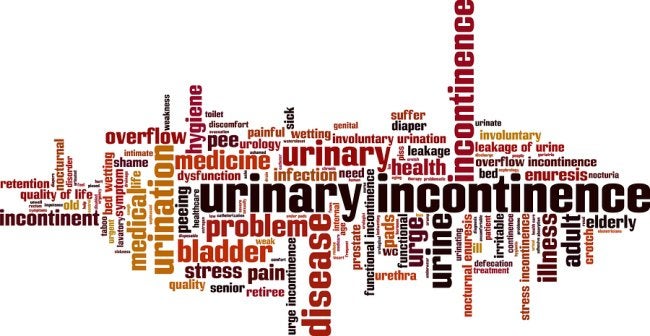-
Get the Facts About Chronic Testicular Pain

Thousands of men visit a urologist because of testicular pain. In some cases, the pain is caused by a debilitating condition called chronic testicular pain, or CTP. CTP ranges from mild to severe and can interfere with every day activities. If you believe you could be suffering from CTP, your urologist can provide treatments to ease your symptoms and help you enjoy a better quality of life. Here is what you need to know about this painful condition.
CTP may be constant or intermittent.
The discomfort associated with CTP may be constant in some men, while others have pain that comes and goes. The distinguishing factor between CTP, and other types of testicular pain, is that CTP persists for three months or more. Some men may have a sudden onset of pain that is eventually diagnosed as CTP, while others have pain that develops gradually.
Symptoms of CTP can vary.
Some men with CTP have symptoms all the time, but other men only have discomfort during activities. The pain can feel like aching and pressure or burning and throbbing, and may also spread to the lower back and upper thighs. The pain can appear in one or both testicles and may switch from side to side. In some men, the pain is accompanied by swelling, fever, painful urination, painful intercourse or ejaculation, and bloody urine. Nausea and vomiting are also possible.
Several treatment options are available.
If you are diagnosed with CTP, the first thing your urologist will do is try to pinpoint the cause. Trauma, infections, hernias, cysts and torsion are all potential causes of CTP, though in some cases, the cause is unknown. If your urologist does find a cause, treating the underlying issue can often resolve the CTP. Medications and surgery may be necessary to treat CTP.
Visit Urology Associates, P.C. for diagnosis and treatment any time you experience testicular pain. Our doctors provide comprehensive care for CTP , sexual health issues including erectile dysfunction, and testicular cancer in Tennessee. To make your appointment, call (888) 329-7700.
-
What You Need to Know About Kidney Stones
Most people know kidney stones’ reputation for being painful, but what exactly are they, and how can your urologist treat them? Watch this video to find out.
Kidney stones occur when certain minerals build up in your urine and form clumps that then must be passed out of your body via your urinary tract. They can cause severe pain in the back and abdomen as they move around, particularly if they are large or have jagged edges. In some cases, kidney stone treatment may revolve around pain medication and drinking extra water, but for large stones, your urologist may recommend surgery or another method of breaking up the stone.
At Urology Associates, P.C. , our doctors offer care for kidney stones, UTIs, erectile dysfunction, and a long list of other conditions affecting the urinary system and sexual health. To make an appointment with a urologist in Tennessee, call (888) 329-7700.
-
Advice for Discussing Sexual Health Issues with Your Partner

If you or your partner is experiencing sexual health issues, such as erectile dysfunction or low libido, communication is an essential part of overcoming them. It’s not always easy to begin a conversation about sexual health, but it’s important for your relationship to have an open and ongoing dialogue with your partner about issues you may both be experiencing. These tips for discussing sexual health can help you start the conversation.
Pick the Right Time and Place
Because sexual health can be a sensitive topic, choose the time and place of your conversation wisely. Pick a time when you and your partner can sit together without distractions and aren’t rushed. Have your conversation in a private place, where both of you can feel comfortable talking about the issues openly and honestly. Avoid starting the conversation before work, when you have someplace to be, or otherwise have obligations that could interfere with your ability to talk for as long as you need to.
Be Direct
Be direct with your partner about your concerns about your sexual health and how it is or could affect your relationship. If you have been diagnosed with a problem by your urologist, it can helpful to explain your condition and even give your partner materials your doctor may have provided to help you understand it. If your partner is the one experiencing the issue, ask any questions you may have and offer to research the answers together. The more informed both of you are about the issues, the better equipped you will be to face them together.
Talk About Treatments
Help your partner understand the treatment options available for the sexual health issue you are experiencing, or ask questions about the treatments he or she is considering. In many cases, partner involvement in treatments can be helpful. In all cases, having the support of your partner when dealing with sexual health issues is important.
Your urologist at Urology Associates, P.C. can help you prepare for your conversation about sexual health by equipping you with the information you need. If you are experiencing sexual dysfunction in Tennessee, make an appointment with a urologist today by calling (888) 329-7700.
-
When to See a Urologist About Premature Ejaculation

At least one in three men will experience premature ejaculation at some point in their lives, and when it is an infrequent issue, then it is not typically cause for concern. However, there are instances in which you should consider talking to a urologist about premature ejaculation, to improve your sexual health and ensure that no underlying health issues are contributing to the problem.
Talk to a urologist about premature ejaculation if you almost always ejaculate within one minute of beginning intercourse or if you are almost always unable to delay ejaculation when you want to. Even if premature ejaculation doesn’t happen often to you, talk to a urologist if you avoid intimacy because of your concerns about ejaculating prematurely.
Urology Associates, PC, and our Men’s Health Clinic provide men with comprehensive sexual health services for concerns such as premature ejaculation and erectile dysfunction. To make an appointment to talk to a urologist about sexual dysfunction in Nashville , please call (855) 901-1338.
-
Treatment Options for Women with Incontinence

Urinary incontinence can cause an enormous amount of anxiety for women, but if it is happening to you, you should know that you are not alone. Incontinence impacts the lives of millions of women of all ages in the U.S. Up to 80% of the 25 million people who live with urinary incontinence are women. The good news for women with incontinence is that you don’t have to suffer in silence. Multiple treatment options are available to control your symptoms and let you approach life with confidence again. Help starts with a visit to your urologist, who may recommend one of these treatments for your incontinence symptoms.
Behavioral Training
In some cases, incontinence symptoms can be overcome with behavioral training, such as bladder training. Bladder training involves scheduling visits to the bathroom and gradually increasing the time between visits, delaying urination for a set period of time when the urge strikes, and doing Kegel exercises to give you better control of the pelvic muscles that stop the flow of urine. Some women find that these exercises help them get adequate control of their symptoms without further treatment.
Medications
When behavioral training is not sufficient, your urologist may recommend medications. There are a number of different medications that can help with incontinence. The one your doctor selects for you depends on a number of different factors, including the type of incontinence you have. For instance, estrogen creams can help with stress incontinence, while Botox can be used to treat urge incontinence. Medications can be used alone or in conjunction with behavioral training.
Lifestyle Modifications
Alongside other treatments, your doctor may recommend some lifestyle changes that could help control your incontinence. Avoiding overconsumption of fluids, wearing a tampon when you jog or dance to put pressure on your urethra to reduce leaks, and avoiding alcohol and caffeine can all be helpful.
Don’t let incontinence impact your life for another day. At Urology Associates, PC, we can help you control your incontinence symptoms and get back to enjoying the activities you love. Make an appointment with a urologist in Tennessee today by calling (855) 901-1338.
Recent Posts
categories
- Uncategorized
- Bladder Cancer
- Women's Sexual Health
- MonaLisa Touch
- Urology
- Urologist
- Erectile Dysfunction
- Kidney Cancer
- Incontinence
- Prostate
- MonaLisa Touch Laser Treatment
- Kidney Stones
- Urinary Tract Infections
- Event
- Sexual Dysfunction
- Testicular Cancer
- Prostate Cancer
- Urology Surgery Center
- urinary incontinence
- vaginismus
- noncoital pain disorder
- Hypoactive Sexual Desire Disorder
- Infographic
- provenge
- Xofigo
- robotic surgery
- hormone replacement
- diabetes
- renal cell carcinoma
- pelvic pain
- hematuria
- sexual health
- chronic testicular pain
- premature ejaculation
- Men's Health Clinic
- Dr. Melvin Seard
- Interstitial Cystitis
- vasectomy
- overactive bladder
- vaginal atrophy
- nocturia
- bladder infections
- urethral strictures
- Acute Epididymitis
- low sex drive
- circumcision
- pelvic floor dysfunction
- Peyronie's Disease
- prostatitis
- female sexual dysfunction
- varicocele
- difficult urination
- low libido
- PSA levels
- male fertility
- penile prosthesis
- prostatic intraepithelial neoplasia
- male infertility
- estrogen levels
- nurse navigator
- stress urinary incontinence
- vaginal yeast infection
- elevated psa
- painful sex
- adult circumcision
- epididymitis
- OAB
- kidney infection
- penile cancer
- pelvic organ prolapse
- Vasectomy Reversal
- bone health
- cystectomies
- clinical trials
- bloody urine
- Advanced Therapeutic Center
- WISH MedSpa
- neurogenic bladder
- WISH Team
- prostate biopsies
- BPH
- fecal incontinence
- lithotripsy
- osteoporosis
- kidney cysts
